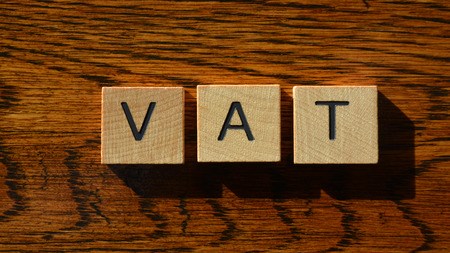South Africa cancels planned VAT increase
In a pivotal fiscal policy shift, the South African government announced the cancellation of its planned Value-Added Tax (VAT) increase, originally set to raise the rate from 15% to 15.5% on 1 May 2025, with a further increase to 16% planned for 1 April 2026. It will remain at 15%.
Initially, Finance Minister Enoch Godongwana—under the ANC-led government—proposed a VAT hike from 15% to 17% to address a major budget shortfall. The move triggered strong opposition from coalition partners like the DA. The backlash forced Treasury to water the plan down to a phased 1% increase, which is now scrapped.
This episode not only exposed the ANC’s aggressive fiscal stance, but it also highlighted how coalition governance, specifically the DA's involvement, prevented the implementation of that stance thereby safeguarding the middle to poor income majority's interests.
Parties that supported
The ANC, leading the initiative, received support from several smaller parties, including:
- ActionSA
- Build One South Africa (BOSA)
- Inkatha Freedom Party (IFP)
- Pan Africanist Congress (PAC)
- Rise Mzansi
- United Democratic Movement (UDM)
- GOOD Party
- Al Jama-ah
- Patriotic Alliance (PA)
These parties collectively voted in favor of the budget, facilitating its passage in the National Assembly.
Parties that opposed
Conversely, the Democratic Alliance (DA), a major coalition partner, vehemently opposed the VAT hike, arguing it would disproportionately burden the poor. The DA not only voted against the budget but also initiated legal action challenging the budget process's legality.
The Economic Freedom Fighters (EFF), also opposed the VAT hike. Shortly after the DA's legal challenge, the EFF launched their own action—calling on the Speaker of the National Assembly to halt the budget vote over alleged procedural flaws.
The uMkhonto weSizwe (MK) Party also criticized the increase, labeling it a betrayal of the working class and a "cruel and calculated attack" on the poor, respectively.
Background on VAT in South Africa
VAT is a consumption tax applied to most goods and services in South Africa, currently levied at a standard rate of 15%. Administered by the South African Revenue Service (SARS), it is a critical revenue source for the government, funding public services like healthcare, education, and social grants. Certain essential items, such as specific food products, are zero-rated to ease the burden on low-income households, while others are exempt.
The last VAT adjustment occurred in 2018, when the rate increased from 14% to 15%. Since then, economic challenges, including high unemployment (32% in 2024) and a Gini coefficient of 0.63, indicating severe inequality, have made tax increases a sensitive issue.
The proposed VAT increase and its objectives
Announced in the 2025 Budget Speech on 12 March 2025, the proposed VAT increase was earmarked for:
- Funding public sector wages.
- Supporting early childhood development programs.
- Retaining teachers, doctors, and frontline workers.
- Revitalizing commuter rail infrastructure.
- Providing above-inflation social grants.
Finance Minister Enoch Godongwana defended the hike, arguing it was essential to maintain fiscal stability amidst weak economic growth, persistent power outages, and logistical disruptions. Initially, a more ambitious 2% increase to 17% was proposed in February 2025 but was scaled back due to coalition disagreements.
Political opposition and public backlash
The VAT increase faced immediate resistance from political parties, economic analysts, and the public. The Democratic Alliance (DA), a key partner in the Government of National Unity (GNU), challenged the proposal’s legality, citing insufficient public consultation.
The Parliamentary Budget Office (PBO) also criticized the hike, noting South Africa’s economic regression and high youth unemployment.
Public sentiment, already strained by high interest rates and living costs, fueled opposition, with consumer groups warning of increased financial pressure on vulnerable populations.
Addressing the revenue shortfall
Forgoing the VAT increase creates a R75 billion revenue shortfall over the medium term. To address this, Godongwana will work on revisions and propose expenditure adjustments to ensure fiscal sustainability without compromising critical services.
A senior finance ministry source told Daily Maverick, “Without a VAT increase, spending cuts are the only game in town realistically”. Additionally, SARS’s compliance efforts, which yielded R260.5 billion in 2023/24, may help offset the shortfall.
Other experts say alternative strategies should be prioritized to tackle South Africa’s fiscal shortfalls instead of increasing VAT, which disproportionately affects the poor.
These strategies include cutting unnecessary government expenditure, trimming down the bloated size of the cabinet, removing VIP protection for political figures, and phasing out underperforming state-owned enterprises.
Some also suggest placing a hold on any future VAT hikes while expanding the list of VAT-exempt essential goods to cushion vulnerable households from rising costs. These proposals aim to foster a more equitable and sustainable approach to fiscal recovery without deepening the burden on ordinary citizens.
Areas of government expenditure that have been criticized as unnecessary, instead of raising the VAT:
1. VIP Protection Costs:
In the 2024/25 financial year, the South African Police Service (SAPS) allocated R2.3 billion for VIP protection services.
Over the past six years, SAPS spent over R42 million on fuel for VIP protection vehicles, averaging more than R583,000 per month.
2. Cabinet Size and Costs:
South Africa's current cabinet comprises 75 ministers and deputy ministers, making it the largest in the country's history and larger than those of countries like Germany, the UK, and Russia.
The expanded cabinet costs taxpayers an additional R239 million annually, with cumulative expenses exceeding R1 billion over the current term.
3. State-Owned Enterprises (SOEs):
- Over the past 15 years, South African taxpayers have spent an estimated R521 billion bailing out state-owned enterprises plagued by corruption and mismanagement, with little to no return on investment.
These expenditures have been highlighted by experts and opposition parties as areas where cost-cutting could alleviate fiscal pressures without resorting to measures like increasing VAT, which disproportionately affects low-income households.
Impact on homeowners and renters
The cancellation of the VAT increase is a significant win for both homeowners and renters, particularly in an economy where disposable income is under mounting pressure. South Africa’s average household spends approximately 35- 45% of its income on housing-related expenses—including rent, bond repayments, utilities, maintenance, and rates. A VAT increase, even by 0.5%, would have subtly but steadily driven these costs higher.
For example, maintenance services, security systems, home appliances, and construction materials—all subject to VAT—would have become more expensive. Landlords facing higher input costs often pass these increases onto tenants through escalated rentals. In new developments or property renovations, even small tax hikes can add tens of thousands of rands to total project costs, feeding into purchase prices or rental rates.
Renovating a kitchen or installing solar panels—where costs can range from R80,000 to R200,000—a 1% VAT increase would have meant paying R800 to R2,000 more, purely in tax. On rental properties, higher VAT on property management services and outsourced maintenance would have gradually inflated operational costs, driving up rents in an already constrained market.
In this context, holding VAT at 15% effectively protects stretched consumers from a domino effect of rising housing costs—especially critical as the latest data shows consumer inflation sitting at 5.4% (March 2025), while electricity tariffs increased by over 12% this year and property rates in major metros climbed an average of 6–8%.
With nearly 13 million South Africans living in rental housing and household debt-to-income ratios still hovering above 60%, the VAT freeze helps avert added financial strain. It also preserves demand in the property market, where affordability challenges are already limiting first-time buyer activity and suppressing rental growth.
Ultimately, shelving the VAT hike provides temporary breathing room—especially for lower- and middle-income households—by preventing housing-related inflation from accelerating further. In a country battling unemployment, inequality, and weak economic growth, this is a critical reprieve.
Looking ahead
As South Africa navigates its fiscal landscape, the focus will be on how Godongwana balances expenditure cuts with economic growth and social equity. The revised budget bills, expected within weeks, will provide clarity on the government’s strategy. Meanwhile, public and political scrutiny will ensure that any new measures prioritize the needs of South Africa’s diverse population.
The cancellation of the VAT increase underscores the power of political dialogue and public engagement in shaping policy. While it addresses immediate economic concerns, it sets the stage for a broader debate on sustainable fiscal strategies in one of Africa’s largest economies.




